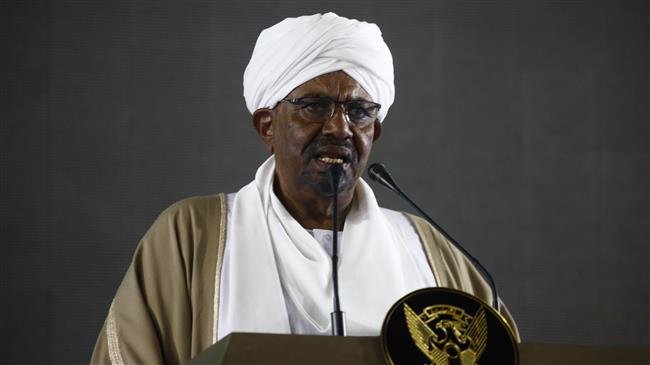Alwaght- President of the conflict-ridden country of Sudan said he was advised to normalize ties with the Israeli regime in a bid to ensure stability in the African country.
President Omar al-Bashir declined to specify who gave him the advice but said in a meeting with the religious leaders in the capital Khartoum that he believed “sustenance is in the hands of God.”
Bashir's remarks come as growing calls for his resignation in the wake of deadly anti-government demonstrations against rising prices and food and fuel shortages in the country over the past months. Amnesty International said Sudan's security forces had shot dead at least 37 protesters during the anti-government rallies.
Sudan is also mired in economic woes, including an acute foreign currency shortage and soaring inflation, which is running at close to 70 percent. Authorities have declared curfews and a state of emergency in several states.
Israeli media reported in November that the Tel Aviv regime was actively working to establish diplomatic ties with Sudan, as part of wider efforts to upgrade relations with central African countries.
The reports said Israeli and Sudanese representatives had held a secret meeting to discuss diplomatic relations in exchange for financial Israeli aid to the African country.
The parties discussed “the warming of relations between the countries and possible Israeli aid to Sudan in the fields of medicine, agriculture and the economy,” The Times of Israel reported.
Israeli daily Haaretz reported that the occupying entity had urged the US and other countries to improve their relationship with Sudan in response.
In 2016, Sudanese Foreign Minister Ibrahim Ghandour said Khartoum was open to the idea of normalizing ties with Israel in exchange for lifting 20-year-old US trade sanctions.
Israel is said to be seeking to take advantage of the Takfiri militancy gripping parts of Africa to sell advanced military equipment to conflict-ridden states in the continent.
The Israeli push came almost two years after Sudan joined Saudi Arabia and Bahrain in cutting relations with Iran.
Also, the New York Times reported last month that child soldiers from Sudan's Darfur have been fighting on behalf of Saudi Arabia in the frontline of the war on Yemen, with money being their only motive.
Citing several Sudanese mercenaries and lawmakers, the report said that as many as 14,000 Sudanese militants have been fighting in Yemen alongside Saudi-backed forces while at least hundreds of them have been killed so far.
The Saudis have reportedly used their vast oil wealth to outsource the war, mainly by hiring survivors of the Darfur conflict to operate in Yemen, many of them children.



























